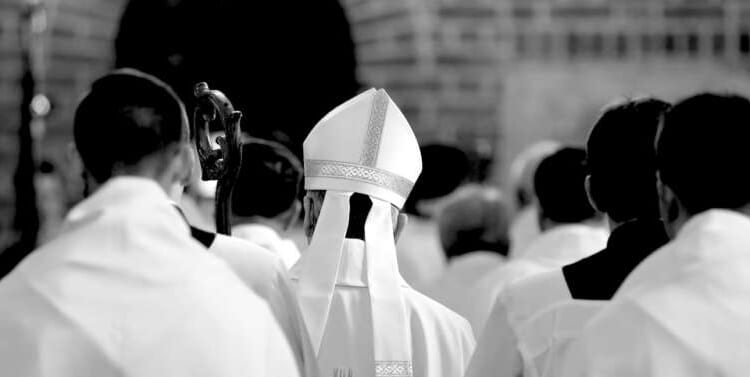LORD (Peter) Lilley did a significant service to demoralised Church of England parishioners with his witty intervention in the House of Lords last week.
During the Report Stage of the Safety of Rwanda Bill, the former Secretary of State for Trade and Industry in the Conservative government led by Margaret Thatcher told Archbishop of Canterbury Justin Welby that he ‘had better check his white privilege and his colonial assumptions, or he might find himself in trouble with some of his bishops’.
The Church Times reported the story with a picture of Lilley under the headline ‘Bishops rile Conservatives in Lords’ Rwanda debate’. But that was client journalism.
In reality, Lilley’s comment was a brilliant dig at the neo-Marxist wokery that is destroying the C of E. The context was that he had pointed out in the Rwanda debate that the Blair government had enshrined in law the concept of a ‘safe country’. The Asylum and Immigration Act 2004 required ‘a listed third country of removal to be treated as a place where the person’s life and liberty are not threatened or, where the person is not at risk of deportation to another country, in contravention of the Refugee Convention’.
Lilley told Welby: ‘I do not recall him, any right reverend prelate or any lawyer, over the many years that that (2004) Act was in place, ever decrying it in the way they decry this proposal. What is the difference?
‘The first is that, in those days, the list was all of white countries, and now we are dealing with a black country. I warn the Most Reverend Primate that he had better check his white privilege and his colonial assumptions, or he might find himself in trouble with some of his bishops.’
The managerial bossiness pinpointed by Lilley, which is so undermining the morale of front-line parishioners, is typified by a statement from the Diocese of Truro attacking the Save the Parish movement.
The Diocese last week posted on its website a claim that clergy are put off applying to dioceses with active Save the Parish groups:
‘All dioceses in the Church of England are having difficulty filling the number of posts available and we know from feedback that dioceses with active Save the Parish groups struggle more than others because clergy are wary of coming into an area where they will be harassed.
‘The church in Cornwall remains in robust health, serving our communities and helping people get to know God. It is a shame that the local Save the Parish leaders are putting more energy into knocking the church than they are into proactively supporting it.’
Save the Parish Cornwall responded robustly. It was regrettable that Truro Diocese ‘should publish a statement of such anger: nothing can be gained by polarising the debate in this way. Save The Parish Cornwall’s campaign is for more priests in parishes. For parishes to be preserved, not merged into huge, unworkable benefices under “Oversight Ministers” and a move toward lay ministry.
‘The Diocese of Truro’s corporate agenda – revealed in the development and implementation of its On The Way restructuring plans – sadly allows and encourages its impersonal and inappropriate responses to people who are simply wanting the Church of England in Cornwall to flourish,’ the group said.
Last week also saw a superb broadside against nasty C of E managerialism in the Telegraph from Madeline Grant:
‘There is not one Church of England – but two. There’s the Reverend Dr Jekyll, the one who performs invaluable work on the ground; burying the dead, visiting the sick, educating more than a quarter of our nation’s schoolchildren to a much higher standard than the state normally achieves.
‘This Church manages the food banks, playgroups, dementia cafés and loneliness workshops. It does its best to protect some of the most valuable parts of our nation’s physical and cultural heritage. Its parish priests do this for little money; its thousands of volunteers do it for none at all.’
The other Church of England is the Reverend Mr Hyde: ‘This is a church of unaccountable committees and upward failure, resulting in perhaps the least impressive bench of bishops since Pope Gregory first observed “non angli, sed angeli”. Members of this caste speak in identikit managerial jargon, which from an institution that has provided some of the most beautiful cadences and turns of phrase in the English language is depressing.’
She observed: ‘It is increasingly clear that these two churches cannot both survive; that this second Church of England, which controls all of its money, runs its internal organisations, manages (read: stitches up) appointments, is doing its utmost to destroy the other one.’
The Collect for today, the Fourth Sunday in Lent, is a prayer for the divine mercy that English Christians surely need in these dark days for the national Church: ‘Grant, we beseech thee, Almighty God, that we, who for our evil deeds do worthily deserve to be punished, by the comfort of thy grace may mercifully be relieved; through our Lord and Saviour Jesus Christ.’

